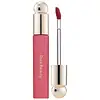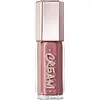What's inside
What's inside
 Key Ingredients
Key Ingredients

 Benefits
Benefits

 Concerns
Concerns

 Ingredients Side-by-side
Ingredients Side-by-side

Water
Skin ConditioningDiphenyl Dimethicone
EmollientDiisostearyl Malate
EmollientBis-Diglyceryl Polyacyladipate-2
EmollientOctyldodecanol
EmollientBis-Behenyl/Isostearyl/Phytosteryl Dimer Dilinoleyl Dimer Dilinoleate
EmollientHydrogenated Polyisobutene
EmollientGlycerin
HumectantDipropylene Glycol
HumectantCetyl PEG/PPG-10/1 Dimethicone
EmulsifyingSorbitan Isostearate
EmulsifyingPolysorbate 60
EmulsifyingPentylene Glycol
Skin ConditioningPhenoxyethanol
PreservativeHydroxyethyl Acrylate/Sodium Acryloyldimethyl Taurate Copolymer
Emulsion StabilisingMenthoxypropanediol
MaskingCeteareth-20
CleansingSqualane
EmollientParfum
MaskingSimmondsia Chinensis Seed Oil
EmollientStevioside
MaskingHelianthus Annuus Seed Oil
EmollientEthylhexylglycerin
Skin ConditioningAmmonium Polyacrylate
StabilisingAluminum Hydroxide
EmollientButylene Glycol
HumectantGardenia Florida Fruit Extract
Skin ConditioningNelumbo Nucifera Flower Extract
Skin ConditioningNymphaea Odorata Root Extract
RefreshingPentaerythrityl Tetra-Di-T-Butyl Hydroxyhydrocinnamate
AntioxidantBenzyl Salicylate
PerfumingLimonene
PerfumingEugenol
PerfumingCI 77891
Cosmetic ColorantCI 17200
Cosmetic ColorantCI 15985
Cosmetic ColorantCI 19140
Cosmetic ColorantCI 45410
Cosmetic ColorantCI 42090
Cosmetic ColorantWater, Diphenyl Dimethicone, Diisostearyl Malate, Bis-Diglyceryl Polyacyladipate-2, Octyldodecanol, Bis-Behenyl/Isostearyl/Phytosteryl Dimer Dilinoleyl Dimer Dilinoleate, Hydrogenated Polyisobutene, Glycerin, Dipropylene Glycol, Cetyl PEG/PPG-10/1 Dimethicone, Sorbitan Isostearate, Polysorbate 60, Pentylene Glycol, Phenoxyethanol, Hydroxyethyl Acrylate/Sodium Acryloyldimethyl Taurate Copolymer, Menthoxypropanediol, Ceteareth-20, Squalane, Parfum, Simmondsia Chinensis Seed Oil, Stevioside, Helianthus Annuus Seed Oil, Ethylhexylglycerin, Ammonium Polyacrylate, Aluminum Hydroxide, Butylene Glycol, Gardenia Florida Fruit Extract, Nelumbo Nucifera Flower Extract, Nymphaea Odorata Root Extract, Pentaerythrityl Tetra-Di-T-Butyl Hydroxyhydrocinnamate, Benzyl Salicylate, Limonene, Eugenol, CI 77891, CI 17200, CI 15985, CI 19140, CI 45410, CI 42090
Polybutene
Diisostearyl Malate
EmollientBis-Diglyceryl Polyacyladipate-2
EmollientOctyldodecanol
EmollientCaprylic/Capric Triglyceride
MaskingPolyethylene
AbrasiveSilica
AbrasiveButyrospermum Parkii Butter
Skin ConditioningEthylhexyl Palmitate
EmollientPhenoxyethanol
PreservativeTocopherol
AntioxidantCetearyl Alcohol
EmollientParfum
MaskingTribehenin
EmollientHelianthus Annuus Seed Oil
EmollientCera Microcristallina
Emulsion StabilisingRetinyl Palmitate
Skin ConditioningSorbitan Isostearate
EmulsifyingMica
Cosmetic ColorantLactic Acid
BufferingPalmitoyl Tripeptide-1
Skin ConditioningCitric Acid
BufferingTitanium Dioxide
Cosmetic ColorantCI 19140
Cosmetic ColorantCI 45410
Cosmetic ColorantCI 73360
Cosmetic ColorantCI 15850
Cosmetic ColorantCI 77499
Cosmetic ColorantPolybutene, Diisostearyl Malate, Bis-Diglyceryl Polyacyladipate-2, Octyldodecanol, Caprylic/Capric Triglyceride, Polyethylene, Silica, Butyrospermum Parkii Butter, Ethylhexyl Palmitate, Phenoxyethanol, Tocopherol, Cetearyl Alcohol, Parfum, Tribehenin, Helianthus Annuus Seed Oil, Cera Microcristallina, Retinyl Palmitate, Sorbitan Isostearate, Mica, Lactic Acid, Palmitoyl Tripeptide-1, Citric Acid, Titanium Dioxide, CI 19140, CI 45410, CI 73360, CI 15850, CI 77499
 Reviews
Reviews

Ingredients Explained
These ingredients are found in both products.
Ingredients higher up in an ingredient list are typically present in a larger amount.
This ingredient is lipid-based synthetic skin-conditioning agent derived from adipic acid and a mixture of fatty acids. It is often called a lanolin substitute.
As an emollient, it helps soften and hydrate the skin. Emollients create a barrier on the skin to trap moisture in.
Due to its fatty acid base, it may not be Malassezia folliculitis safe.
Learn more about Bis-Diglyceryl Polyacyladipate-2CI 19140 is also known as Tartrazine. Tartrazine is a synthetic dye used in cosmetics, foods, and medicine to add a yellow color.
Tartrazine is created from petroleum and is water-soluble.
Some people may experience allergies from this dye, especially asthmatics and those with an aspirin intolerance.
Learn more about CI 19140CI 45410 is a synthetic red-pigment and dye.
It often goes by both Red 28 or Red 27; manufacturers label both ingredients as CI 45410.
This dye is commonly found in makeup because it imparts a vivid color. Some types of this dye change color based on pH level and interaction with moisture:
Your skin has a natural pH of around 4.5 - 5.5.
According to the FDA, CI 45410 is not permitted for use in eye products.
Red 27 is a flourescein dye and commonly used as a fluorescent tracer in medicine.
Learn more about CI 45410Diisostearyl Malate is an emollient and most often used in lip products. It comes from isostearyl alcohol, a fatty acid, and malic acid, an AHA.
As an emollient, Diisostearyl Malate helps create a thin film on your skin to trap moisture in. This helps keep your skin soft and smooth.
Helianthus Annuus Seed Oil is the oil derived from the seeds of a Sunflower. Sunflower seed oil is non-fragrant. It is an emollient, meaning it helps to soften the skin.
Sunflower seed oil contains many fatty acids. The fatty acids found in sunflower seeds include (from highest amount to least): linoleic acid, myristic acid, palmitic acid, stearic acid, arachidic acid, oleic acid, and linolenic acid.
These fatty acids help the skin create ceramides. Ceramides play a role in repairing the skin barrier.
Helianthus Annuus Seed Oil helps moisturize the skin. This in turn helps the skin look more rejuvenated and smoother.
Sunflowers are rich in vitamin E.
Historians believe Indigenous cultures of North America domesticated sunflowers before corn. Thus they relied on sunflower oil for a variety of uses. One such use is moisturizing skin and hair.
Sunflower seed oil may not be fungal acne safe. We recommend speaking with a professional if you have any concerns.
Learn more about Helianthus Annuus Seed OilOctyldodecanol is a fatty alcohol. It is primarily used to enhance the texture of products.
As an emulsifier, Octyldodecanol helps prevent the oils and waters from separating. It also prevents ingredients from creating foam when shaken.
Octyldodecanol is created by reducing fatty acid to an alcohol.
Due to its high molecular weight, it does not get absorbed into the skin.
Learn more about OctyldodecanolParfum is a catch-all term for an ingredient or more that is used to give a scent to products.
Also called "fragrance", this ingredient can be a blend of hundreds of chemicals or plant oils. This means every product with "fragrance" or "parfum" in the ingredients list is a different mixture.
For instance, Habanolide is a proprietary trade name for a specific aroma chemical. When used as a fragrance ingredient in cosmetics, most aroma chemicals fall under the broad labeling category of “FRAGRANCE” or “PARFUM” according to EU and US regulations.
The term 'parfum' or 'fragrance' is not regulated in many countries. In many cases, it is up to the brand to define this term.
For instance, many brands choose to label themselves as "fragrance-free" because they are not using synthetic fragrances. However, their products may still contain ingredients such as essential oils that are considered a fragrance by INCI standards.
One example is Calendula flower extract. Calendula is an essential oil that still imparts a scent or 'fragrance'.
Depending on the blend, the ingredients in the mixture can cause allergies and sensitivities on the skin. Some ingredients that are known EU allergens include linalool and citronellol.
Parfum can also be used to mask or cover an unpleasant scent.
The bottom line is: not all fragrances/parfum/ingredients are created equally. If you are worried about fragrances, we recommend taking a closer look at an ingredient. And of course, we always recommend speaking with a professional.
Learn more about ParfumPhenoxyethanol is a preservative that has germicide, antimicrobial, and aromatic properties. Studies show that phenoxyethanol can prevent microbial growth. By itself, it has a scent that is similar to that of a rose.
It's often used in formulations along with Caprylyl Glycol to preserve the shelf life of products.
Sorbitan Isostearate is an emulsifer and cleaning agent. It is created from isostearic acid and sorbitol.
As an emulsifier, Sorbitan Isostearate prevents oils and water from separating.
Due to its isostearic acid base, it may not be safe for Malassezia or fungal acne.
Learn more about Sorbitan Isostearate